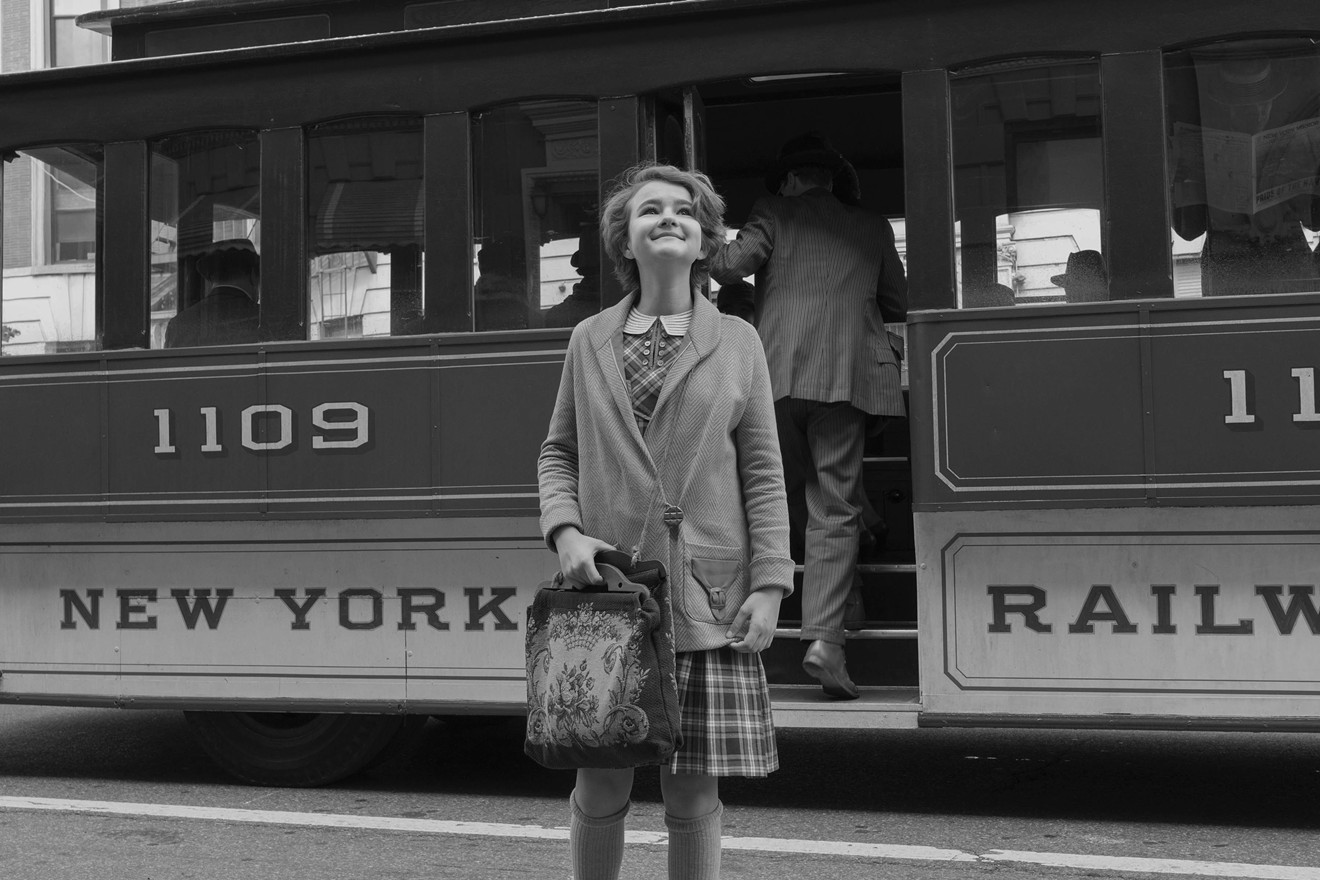For all his reputation as a capital-A Auteur, Todd Haynes has always demonstrated impressive stylistic versatility. The Sirkian pastiche of Far from Heaven is a far cry from the lo-fi expressionism of Poison, and the music video wonderland of Velvet Goldmine has relatively little in common with the fractured minimalism of I’m Not There. In that sense, among directors, he might be our foremost cinematic shapeshifter — which is just one reason why Wonderstruck feels so vitally personal.
An adaptation of a young adult novel by Brian Selznick (who also wrote the book that inspired Martin Scorsese’s Hugo), Haynes’ film follows two timelines: In one, 12-year-old Ben (Oakes Fegley), living in small-town Minnesota in 1977 and mourning the death of his librarian mother (Michelle Williams), finds a stray bookmark that may hold a clue to the identity of the father he never knew. Rendered deaf by a lightning strike (no, really), and feeling more and more like an outcast, Ben hops a bus for New York City. Intercut with his story is that of Rose (an incredible Millicent Simmonds), a deaf girl living in Hoboken in 1927 and obsessed with a silent movie star (Julianne Moore). Frustrated with her sheltered life and her domineering father, she, too, heads to the city, where she hopes to find this mysterious woman.
There are few directors better than Haynes at adopting varied voices and vernaculars and then blending them to create something intoxicating and new. As these kids discover New York in their own ways, Wonderstruck switches between the silent-film aesthetics of Rose’s journey (no dialogue, striking angles, bold emotions) and the ’70s stylizations of Ben’s (zooms, fast-cutting, handheld shots, tight close-ups). But the intercutting isn’t clean — the styles sometimes mix and riff off each other, and there are moments when the film hops time periods not out of any narrative logic, but to pursue a gesture, an image or idea. The result is as much musical as it is cinematic. Indeed, for lengthy stretches, Wonderstruck plays like a city symphony; the kids’ silent movements are accompanied by Carter Burwell’s dominant score, bouncing from elegant orchestrations to funk fuzz to melodic drones.
It’s all clearly building up to something: Key characters get briefly abandoned, storylines are cut short, random details are held onto for a little longer than you might anticipate. I did wonder at times if the denouement could ever do justice to the constantly shifting, jazzy zigzag of the tease. I needn’t have worried: Haynes gives us an extended finale that not only offers emotional payoff to the held-breath anticipation of the story, but also serves as a tribute to storytelling itself — and to the wonders of following your dreams and maybe even your nightmares.
I’m told that Wonderstruck hews pretty close to its source material, which makes it all the more startling that the film seems so personal for Haynes — it seems to combine many elements from Haynes’ career and life, including an extended nod to the DIY puppetry of Superstar: The Karen Carpenter Story. Both of these kids are enacting variations on the same self-actualizing journeys of obsession so many people — creative and otherwise — have taken. I’d love to screen this alongside Haynes’ Velvet Goldmine, another nakedly honest work about finding your circle and your passion, and all the struggles that come with discovering (and holding onto) your place in the world.
There is so much packed in here; Wonderstruck is simultaneously the densest and loosest film Haynes has made. And, like many stories based on books for children, much of it makes more emotional than logical sense. I was wowed by pretty much all of it, but the moment that most resonates — the one that seems to embody the whole movie — comes early on, as Rose stands on a boat headed for Manhattan, holding a newspaper clipping about the actress she’s searching for. Suddenly, the wind rips it from her hand and, for a fevered instant, Rose runs and jumps around the deck trying to retrieve it. Haynes holds on her frantic scrambling for a surprisingly long time — the sight of an obsessed girl, unwilling to give in or give up on her restless, fleeting dream.
[
{
"name": "Air - MediumRectangle - Inline Content - Mobile Display Size",
"component": "19274298",
"insertPoint": "2",
"requiredCountToDisplay": "2"
},{
"name": "Editor Picks",
"component": "17482312",
"insertPoint": "4",
"requiredCountToDisplay": "1"
},{
"name": "Inline Links",
"component": "18711090",
"insertPoint": "8th",
"startingPoint": 8,
"requiredCountToDisplay": "7",
"maxInsertions": 25
},{
"name": "Air - MediumRectangle - Combo - Inline Content",
"component": "17482310",
"insertPoint": "8th",
"startingPoint": 8,
"requiredCountToDisplay": "7",
"maxInsertions": 25
},{
"name": "Inline Links",
"component": "18711090",
"insertPoint": "8th",
"startingPoint": 12,
"requiredCountToDisplay": "11",
"maxInsertions": 25
},{
"name": "Air - Leaderboard Tower - Combo - Inline Content",
"component": "17482313",
"insertPoint": "8th",
"startingPoint": 12,
"requiredCountToDisplay": "11",
"maxInsertions": 25
}
]











